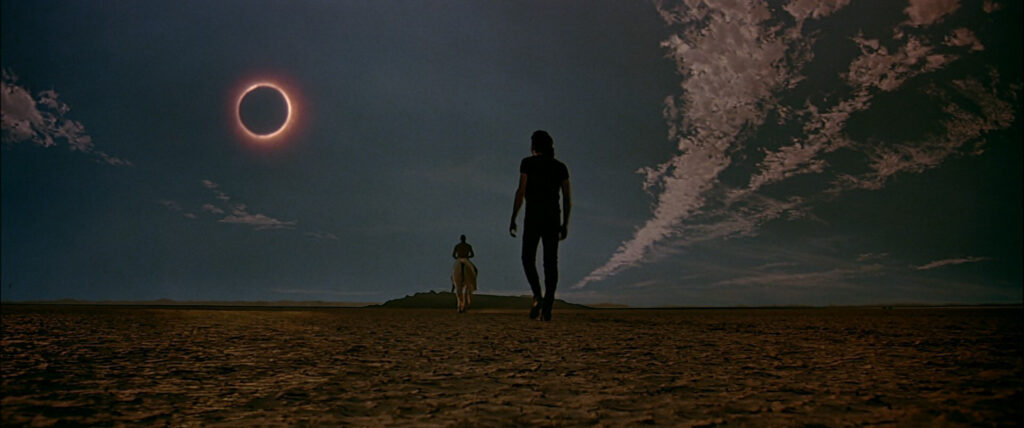
Despite its title The Doors (1991) isn’t a film about the band but rather its frontman Jim Morrison (Val Kilmer). The Doors comes as part of a cycle of films that Oliver Stone made that grapple with the history of the sixties. Stone’s films mythologize the culture of the sixties. Stone reaffirms the tall tales of the decade with all of the excess of the nineties. Stone holds a mirror up to his generation and sees only what he desires to see.
The Doors is almost all myth. Images draw on Native America religious rites, news reels of the Vietnam War, and a low rent psychedelia to create a kind of shorthand for the counter culture experience of the sixties. Stone isn’t interested in the details or motivations of his characters, he’s invested in the grand gestures of the “Lizard King”. Stone finds in his subject not a flesh and blood man but a zeitgeist made flesh.
Like JFK (1991), The Doors isn’t a film of history but a film of Oliver Stone’s history. Stone casts himself as a kind of Buffalo Bill who willingly reshapes the historic record for his own personal gain as much as for his own peace of mind. The Doors is a spectacle that at its best replicates the trippy effects of Easy Rider‘s (1969) Mardi Gras sequence and at its worst comes across as a sickening pantomime.
Val Kilmer’s performance is the great redeeming quality of The Doors. His approach to playing the musician was so successful it became the mold for Walk The Line (2005) and Ray (2004) years later. Kilmer fights the grain of Stone’s myth making apparatus, desperately revealing himself before the cameras. Kilmer tries again and again to reclaim his agency from the jaws of Stone’s romantic fatalism and greedy nostalgia.
The self-indulgent nature of Stone’s history lessons make these films, thirty years or more later, painfully shallow and terribly reductive. What passed as bittersweet thirty years ago now looks and feels disgusting. There is nothing to The Doors, JFK or Platoon (1986) that feels relevant today. These films represent a nostalgia for the sixties tied to the moment they were created. There is nothing transcendent about The Doors.
